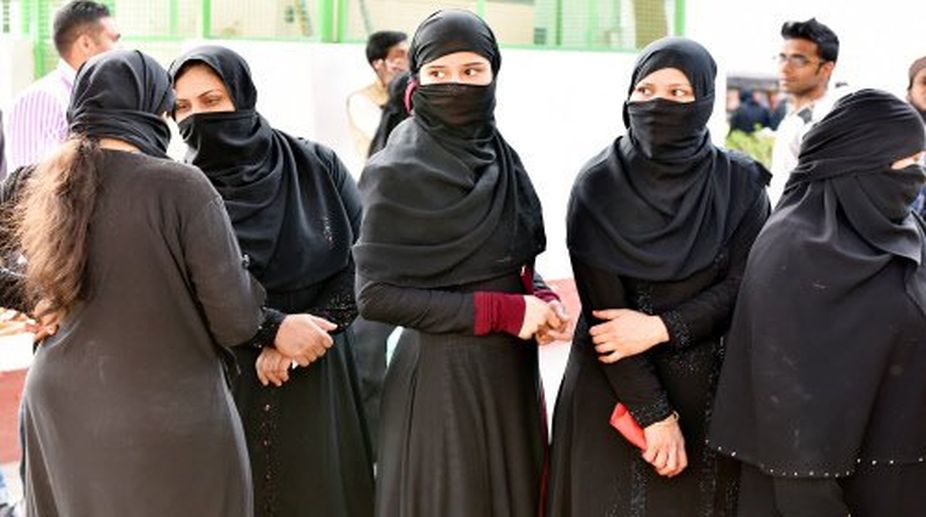The Supreme Court today said a Constitution bench will hear during the summer vacation the plea challenging the validity of the triple talaq, "nikah halala" and polygamy among Muslims from 11 May.
Initially the hearing would take place on 11 and 12 May and then would continue from 15 to 19 May, said a bench of Chief Justice Jagdish Singh Khehar and Justice D Y Chandrachud.
The Chief Justice said that the hearing could also take place on the weekends ~ 13 and 14 May (Saturday and Sunday) ~ as judges have consented to sit on weekends.
CJI Khehar told the lawyers to draw a time-frame for the arguments, saying that if it could be set during the hearing of the challenge to the National Judicial Appointments Commission (NJAC) Act, why not in this matter. "If time-frame can be fixed in NJAC, then why not in this case," he asked the lawyers.
The apex court on 16 February, while fixing the hearing on triple talaq for today, had asked the lawyers representing the two sides to submit their issues backed by short reasons and judgments that they would be relaying on to the Attorney General.
The court had also urged the lawyers of both sides to split the issues they wished to address among themselves, so that the hearing could be completed within the allotted time.
There were some discussion among the lawyers after CJI Khehar said there would be three Constitution benches that would hold hearing on three important matters ~ triple talaq, Whatsapp and on Assam migrants.
Observing that if the judges were ready to work during the summer vacation, then why not the lawyers, Chief Justice Khehar said: "If we don't do it now, it will not happen for years. (Then) You don't blame us."
Finding that some lawyers were apparently reluctant, he Khehar said: "There is no summer vacation in which I have not sat on a bench to hear matters. You lawyers want to work together, fine. You don't want to work together, fine. We are happy to enjoy vacations."
Senior counsel Kapil Sibal made it clear that he was not comfortable with the simultaneous hearing by three Constitution benches, suggesting that one bench could follow the other.
On 27 March, the All India Muslim Personal Law Board (AIMPLB) told the apex court that the pleas challenging such practices among Muslims were not maintainable as the issues fell outside the realm of judiciary.
The AIMPLB had also said that the validity of Mohammedan Law, founded essentially on the Holy Quran and sources based on it, cannot be tested on the particular provisions of the Constitution.
It had said there was a need for "judicial restraint" before going into constitutional interpretation of these unless such an exercise becomes unavoidable.
The apex court had earlier said it would decide issues pertaining to "legal" aspects of the practices of triple talaq, 'nikah halala' and polygamy among Muslims and would not deal with the question whether divorce under Muslim law needs to be supervised by courts as it falls under the legislative domain.
The Centre, on 7 October last year, had opposed in the Supreme Court the practice of triple talaq, 'nikah halala' and polygamy among Muslims and favoured a relook on grounds like gender equality and secularism.
The apex court had taken suo motu cognizance of the question whether Muslim women faced gender discrimination in the event of divorce or due to other marriages of their husband.











